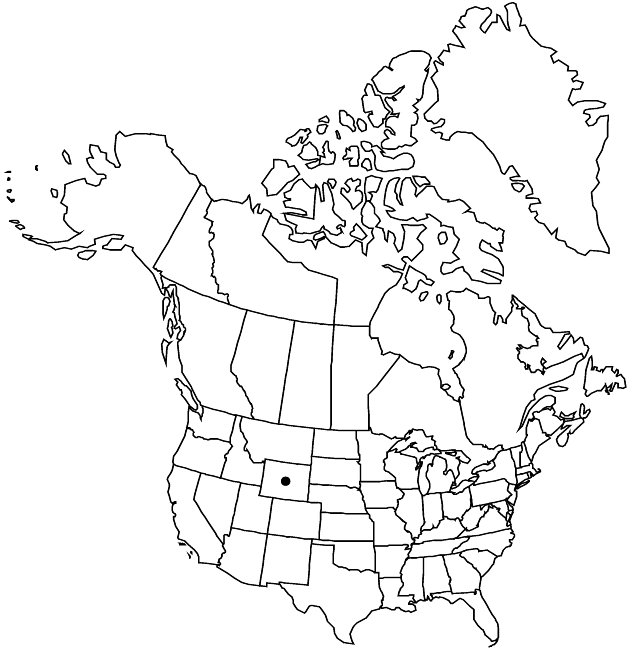Difference between revisions of "Pyrrocoma clementis var. villosa"
Phytologia 73: 57. 1992.
Basionym: Pyrrocoma villosa Rydberg Bull. Torrey Bot. Club 27: 625. 1900
Treatment appears in FNA Volume 20. Treatment on page 416.
FNA>Volume Importer |
FNA>Volume Importer |
||
| Line 53: | Line 53: | ||
|publication year=1992 | |publication year=1992 | ||
|special status= | |special status= | ||
| − | |source xml=https://jpend@bitbucket.org/aafc-mbb/fna-data-curation.git/src/ | + | |source xml=https://jpend@bitbucket.org/aafc-mbb/fna-data-curation.git/src/f50eec43f223ca0e34566be0b046453a0960e173/coarse_grained_fna_xml/V19-20-21/V20_954.xml |
|tribe=Asteraceae tribe Astereae | |tribe=Asteraceae tribe Astereae | ||
|genus=Pyrrocoma | |genus=Pyrrocoma | ||
Revision as of 20:31, 16 December 2019
Plants 10–15 cm. Stems ascending. Leaves oblanceolate, 70–100 × 10–15 mm, margins entire or slightly denticulate. Involucres ca. 20 mm wide. Phyllaries narrowly lanceolate, apices attenuate. Cypsela faces glabrous.
Phenology: Flowering Jul–Aug.
Habitat: Openings in pine forest, above timberline in alpine meadows
Elevation: 2700–3500 m
Discussion
Of conservation concern.
Variety villosa is recognized mainly by its glabrous cypselae, lanceolate phyllaries, and geographic isolation. It is known primarily from the Big Horn Mountains in north-central Wyoming. The affinities of this poorly known taxon are obscure. It has been considered a distinct species or related to Pyrrocoma uniflora or P. integrifolia.
Selected References
None.
Lower Taxa
None.
